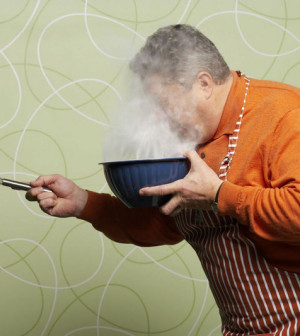- Could Your Grocery Store Meat Be Causing Recurring UTIs?
- Are You Making This Expensive Thermostat Error This Winter?
- Recognizing the Signs of Hypothyroidism
- 10 Strategies to Overcome Insomnia
- Could Artificial Sweeteners Be Aging the Brain Faster?
- Techniques for Soothing Your Nervous System
- Does the Water in Your House Smell Funny? Here’s Why
- Can a Daily Dose of Apple Cider Vinegar Actually Aid Weight Loss?
- 6 Health Beverages That Can Actually Spike Your Blood Sugar
- Treatment Options for Social Anxiety Disorder
Parents of Kids With Food Allergies Believe They’re Allergic, Too

Many parents of children with food allergies mistakenly believe they are allergic, too, a new study finds.
The study included parents who said they, like their kids, had food allergies. But fewer than one-third of the parents tested positive for food allergies.
The study was published Oct. 12 in the Annals of Allergy, Asthma and Immunology.
“Either people haven’t been tested and are assuming an allergy from a previous reaction to a food, or they haven’t been tested properly and may not truly have an allergy. Allergy testing, including blood and skin prick testing, is not always reliable,” co-lead author Dr. Melanie Makhija said in a journal news release.
The study included nearly 2,500 parents whose children had food allergies. Of these, almost 14 percent of parents said they themselves had a food allergy. But when those parents were tested, researchers found that only 28 percent of them had a true allergy.
Previous studies have focused on the general adult population, according to study co-lead author Dr. Rachel Robison.
“While we found positive test results were more common in parents of kids with food allergies, the actual levels in the blood for the foods were quite low. Low positives in allergy testing are more likely to be false positives. This points to the importance of proper testing for any kind of allergy, but particularly food allergies,” Robison said.
“Interestingly, we also found that of the parents who reported no food allergy, 14 percent had positive tests to peanut and sesame, for example,” she said.
Robison and Makhija are allergists at Ann & Robert H. Lurie Children’s Hospital of Chicago and assistant professors at Northwestern University Feinberg School of Medicine in Chicago.
More information
The American Academy of Family Physicians has more on food allergies.
Source: HealthDay
Copyright © 2026 HealthDay. All rights reserved.










